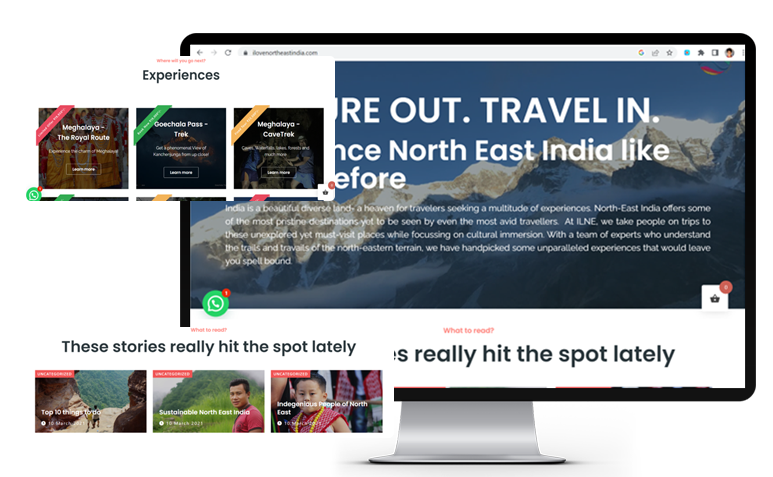
Our economy and work culture have always been a strong reflection of the current state of society. Every shift in the latter leads to an adjustment in the way we work and spend our money. For example, with the second World War, women were introduced into the workforce as the men went into war. After the Great Depression, the workforce, having found a deep fear of losing their jobs, displayed a strong sense of loyalty towards their workplaces.
So, it comes as no surprise that a global pandemic has shifted the way we view work and professional success. Up until now, we were being led by ‘hustle culture’ and success was defined by monetary achievements. But as professionals across the globe were pushed into isolation and forced to cope with the loss of loved ones, desperately searching for meaning to keep themselves from losing their minds amidst it all, this shifted. As the pandemic demonstrated the inherent impermanence of life, working endless (mostly stressful) hours to only find two days to spend with friends and family and run personal chores stopped making sense.
It is this shift in priorities that has led to a worldwide phenomenon which is being called ‘The Great Resignation.’
What is the Great Resignation?
In simple words, it is a shift in the average professionals’ perspective on life and work. A record-high number of 4 million working professionals are turning away from their 9-to-5 jobs each month in search of something more balanced and fulfilling. Researchers are also calling this the ‘Big Quit’ and have concluded that these may be the reasons for it:
1. Burnout: The start of the pandemic saw companies across the world adopting pay cuts and mass layoffs as a tool to cope with financial fluctuations. This not only put a lot of people under financial stress but resulted in those who still held jobs picking up the slack. This was rarely fairly compensated for and led to people experiencing increased instances of work-related stress and anxiety. It did not take long for people to lose faith in their leaders and a work environment that seemed to be getting even more exploitative.
2. Independence and autonomy: Many professionals who were financially stable chose to dip their toes into running their own businesses. Many converted long-term hobbies into professional gigs, while others turned to freelancing. This gave people complete control over their time as well as the flexibility to pursue multiple career options.
3. Increasing importance of interpersonal relationships: The thing that got most of the world through the pandemic was close relationships. Daily phone and video calls, virtual movie nights and reunions became tools for sanity during these unprecedented times. Many people moved back to their hometowns to save on costs and be closer to families. Additionally, the many lives that were lost to the virus pushed us to reevaluate the time we were spending with those we cared about. Opting for alternative forms of employment allowed people the independence they needed to prioritise their time with their loved ones.
Survival of the most adaptable
As with most “global” phenomena, the statistics largely reflect the impact of The Great Resignation in the USA. This limits our understanding of how the pandemic might have impacted the populations in developing and underdeveloped communities. The USA is amongst the most developed societies in the world and offers unemployment benefits which allow people to take more risks as they explore other options. Financial disparities within organisations might also have a role to play here, as a majority of the population that quit are from mid-senior level positions.
On the brighter side, with such a large pool of professionals looking for fresh avenues, it might be the perfect opportunity for companies to make fundamental shifts in their work cultures. The event also recognises the need for redefining the workspace to better accommodate the various aspects of human life. As a result, many companies have already begun adopting work models that are holistic instead of focusing primarily on productivity.
More emphasis is being placed on how adaptable an organisation is, along with how emotionally attuned to their employees’ needs the leaders are. Once, during a conversation on managing remote teams, Bhavana, the founder of Wytti, pointed to the value of mental flexibility, accountability, and trust within the organisation.
“Clear communication and trust are the cornerstones of building remote teams. You cannot afford to micromanage anymore. It is not a fruitful use of the manager’s energy or the team’s. We [at Wytti] hire professionals who show responsibility and dependability and just trust that they will continue to give the best they can. We are all working towards growth—of the company as well as its employees.” – Bhavana Pandey, Founder, Wytti
Where to, now?
Work, as we know it, has changed forever. The newer model seems to be driven by values such as mutual transparency and accountability. Employees around the world are now looking at their organisations for support and security in times of need, which is an urgent call away from the toxic, exploitative work culture that has been glorified over the past decade.
So, what is the way forward? Human-centric values focused on the mental, emotional, and physical wellbeing of the employees are replacing output and productivity-based models of leadership. Authorities are being pushed to cultivate dialogues surrounding mental health within their teams. Zoom meetings are now being bookended with meditations, mental check-ins, or even a quick desk workout session to create a more balanced experience for virtual employees. Work boundaries and fewer working hours are also being promoted through 4-day work week experiments. Employees are also actively seeking a more positive work culture even if it comes with lesser pay.
A man’s search for meaning
Victor Frankel, in his book, A Man’s Search For Meaning draws very compelling arguments for how ‘hope and meaning’ can help us overcome the worst of times. A quote from the book reads:
“The last of human freedoms—to choose our attitude in any given set of circumstances, to choose one’s own way.”
When an extremely stressful work culture is followed by such a drastic shift in preferences, especially when the cause of this shift is a global pandemic, it reflects a massive change in people’s pursuit of meaning. When all our 10-year plans and bucket lists have been intimately isolated within our homes, wanting a life that is more fulfilling now becomes a need, instead of a want. The value we now assign to simple things, such as childhood hobbies, time with family, a call with our parents—things we often took for granted, has increased remarkably.
Large organisations now have the responsibility to dismantle toxic elements from the work culture and humanise their pursuit of excellence. After all, all work and no play is said to make Jack a dull boy.










